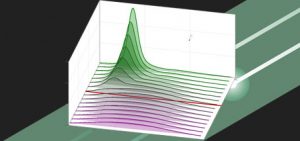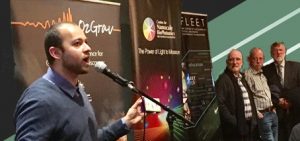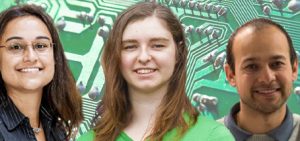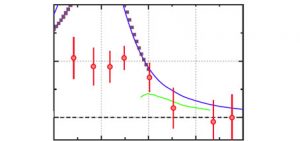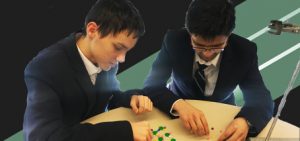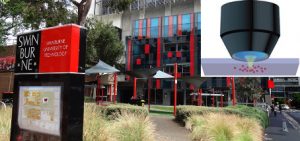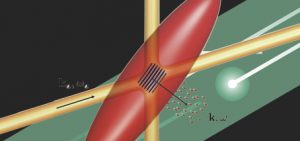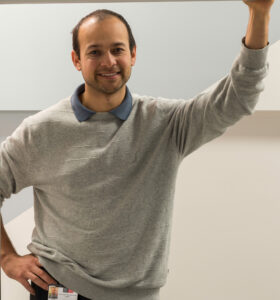
“Set the goal, believe in yourself, and set yourself up for the challenge”
Carlos Kuhn has applied skills learned in research to his new positions in government and the defence industry
Solving complex problems, data analysis to aid decision-making, and outreach: from cold-atoms research to defence industry consultancy
Hi former colleagues from FLEET!
I’m Carlos Kuhn. At FLEET, I was a post-doctoral research fellow under the supervision of Prof. Chris Vale at the Centre for Quantum and Optical Science at Swinburne University of Technology, where we investigated non-equilibrium and topological phenomena in cold atoms.
My time at FLEET was very important to my career development. It exposed me to various opportunities such as presenting my research in an accessible way to the public, talking on a radio interview and building a network. Those communications skills are fundamental in any environment we could possibly work in.
“What are you doing now?”
I’m still a quantum physicist, now working with data and solving complex problems in the Australian defence industry, including researching disruptive technologies in Artificial Intelligence (AI) and quantum computation. So I’m applying my analytical and modelling skills to help Defence Australia in decision making around being as well prepared as they can be.
“I seem to recall you were an outreach champion at FLEET… are you still doing outreach?”
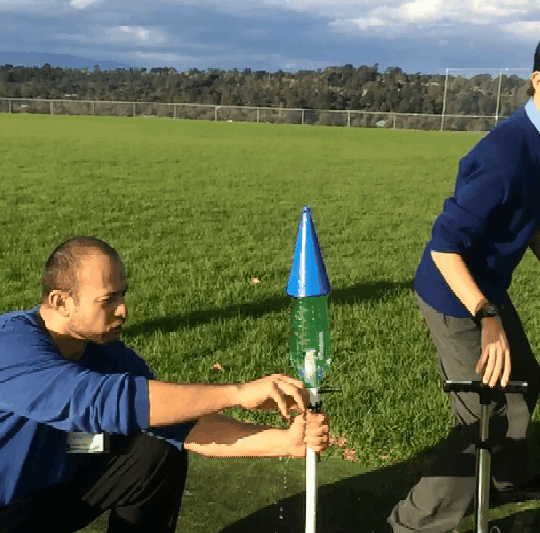
Inspiring students at Edinburgh College to reach for the stars, guiding the kids’ water-powered rocket experiments
Absolutely! I am very grateful to all FLEET’s efforts to incentivise researchers to get engaged with the community through outreach.
I love science, and that is why in both my workplaces since FLEET, I’ve kept doing outreach activities. I am still a member of STEM Professional at school, CSIRO’s program, and I am doing science videos on my YouTube channel. Sometimes I get invited to participate on my daughter’s channel as a special participant. Check out this video where we prepared an experiment for her school’s science fair (https://youtu.be/JJudUO1RYvc).
How’d you get the new job(s)? How have you made career decisions?
It wasn’t simple. I believe that every PhD or ECR will have the moment in their career where they need to decide where to go next. I also had this moment (it was not a short period) and I talked with several senior peers to collect data that helped me decide. (Editor’s note: spot the scientist!)
In my humble opinion, the most important is defining a clear and realistic goal and then working towards it, making sure each step aligns to the goal.
In my case, I wanted to provide stability for my family, so I decided to apply for opportunities outside of the academic realm. I was interested in job security, so I targeted jobs in the Australian Government.
After numerous applications, I managed to convince someone in the Defence and Science Technology Group (DSTG) that having a PhD in theoretical physics and more than 7 years working as post-doc in cold atoms laboratories, has prepared me to solve complex problems, and taught me how to analyse data to help stakeholders to make decisions. That was the start of my career move to Data Sciences, in February 2020.
Although I got the job security I was looking for, I had to trade off salary, as I was considered an ECR again.
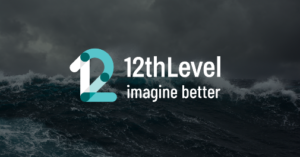
12thLevel is a software engineering company with specialist capability in big data, analytics and AI.
On my first project in DSTG, I modelled Defence’s Investment portfolio decision-making process as an Integer Linear programming problem and developed a few algorithms to optimise the Investment portfolio. During this work, I collaborated with a company named 12thLevel Pty Ltd to build the front-end for my algorithm.
After the project, the company invited me to work with them, and I have been working as the 12thLevel Principal Scientist since September, building a Science and Tech capability in the company.
Which means the setback in salary, and perhaps in my ego too, after leaving academia was temporary. I’m glad I accepted the challenge of the new job.
I am leading the data analytics team, and at the same time putting together the Research and Development department. That is a small/medium-enterprise company, which presents a few challenges, such as a limited capability. But it’s a great opportunity, I am learning a lot about business in Australia, and further tuning my leadership skills.
The lesson learnt so far is: set the goal, believe in yourself, and set yourself up for the challenge.
FLEET alumni
FLEET is developing a skilled workforce of future Australian science leaders. We are extremely proud of those members who have already moved on to great careers, making use of skills developed in their time at FLEET. Ultimately it will be FLEET alums as much as research outputs that define the success of the Centre. Read more alumni news at FLEET.org.au/alumni


